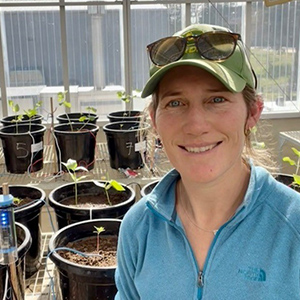Connect and collaborate
We are looking for researchers, students, funding and partners to help take our research to the next level.
Salinity is increasing in the Delta for several reasons. The availability of fresh water has decreased and the frequency of saline intrusions has increased during the dry season due to climate change-induced sea level rise, changed seasonal rainfall patterns and changed water flows in the Mekong River.
Severe crop losses have been reported with up to 70% of rice salt damaged and 30% of the crop yielding no grain in some provinces. This has created a significant loss of income to thousands of farmers and it is predicted that these events will increase in frequency, magnitude and spatial extent.
Project name
Farmer Options for Crops Under Saline conditions (FOCUS) in the Mekong River Delta, Vietnam (2020 - 2025)
Funding Australian Centre for International Agriculture Research (ACIAR) $2.3M
Farmers and supporting Department of Agriculture and Rural Development (DARD) staff are seeking improved soil management techniques and profitable alternative crops to grow in the dry season. These options must be marketable and profitable for rural communities to sustain livelihoods.
This project aims to equip local stakeholders with the best soil management and alternative crop options to grow during the dry season when the threat of salinity is greatest.
The focus of the project is to
The project’s goal is to increase production and profitability of saline-affected crop production systems in the Mekong Delta and to create a capacity legacy to enable these systems to adapt to ongoing climate change.
The expected outcomes include:


We are looking for researchers, students, funding and partners to help take our research to the next level.